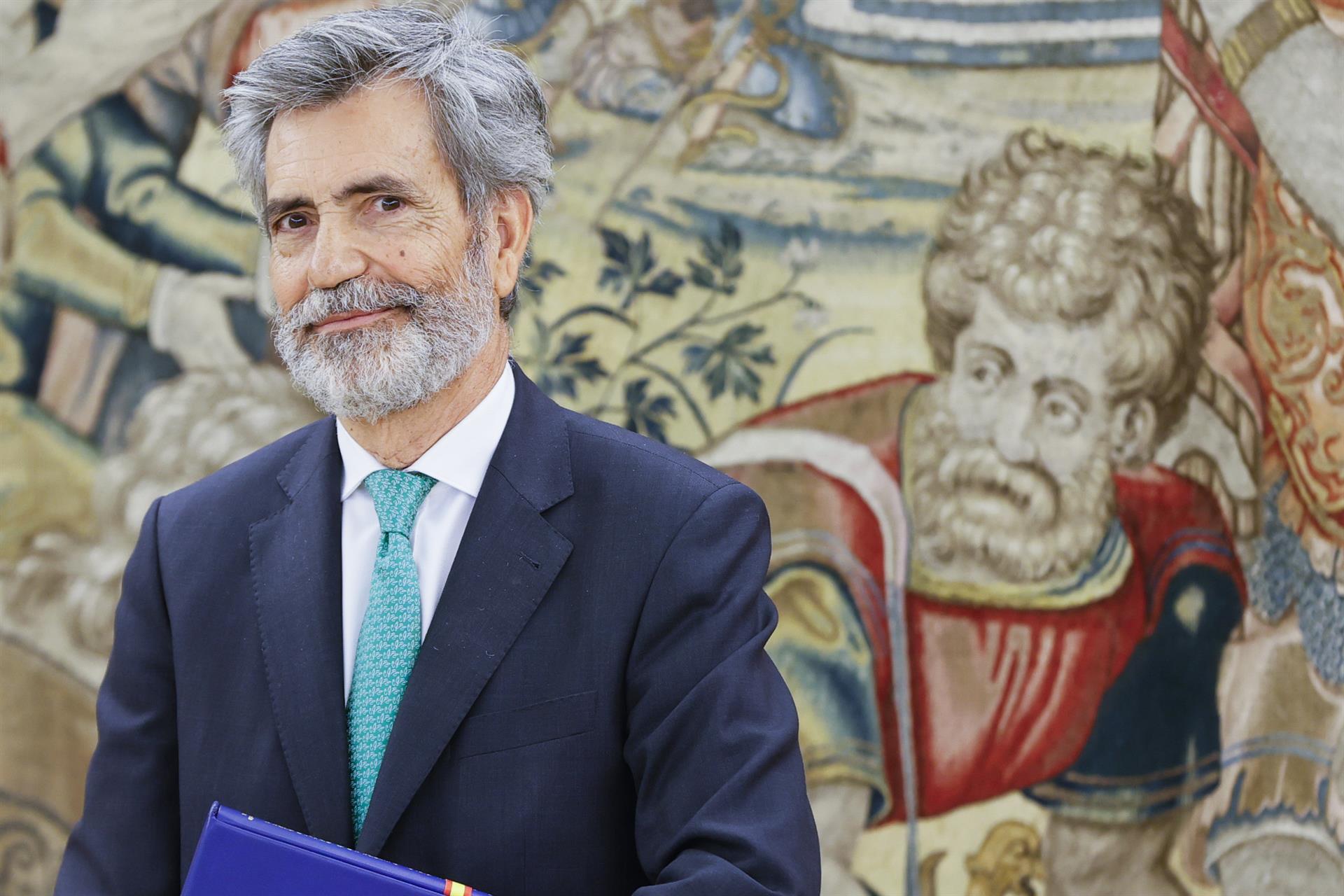New alert for the pardoned Catalan political prisoners. Carlos Lesmes, who resigned from the presidency of Spain's General Council of the Judiciary (CGPJ) on October 10th to force the two major political parties, PSOE and PP, to end the deadlock that is preventing the renewal of the judges' governing body, has recently taken part in procedural resolutions that are moving forward the Supreme Court's review of the pro-independence leaders' pardons. After leaving his job at the top of the heirarchy, he has returned to the administrative disputes section of the Supreme Court, and specifically to the chamber which, in an exceptional move, reopened the case of the pardons by admitting political parties as part of the procedure. It all happened after a change of judges, which favoured the conservative dominance of the section. Lesmes could form part of the section that will have to deliberate on the substance of the question of whether the pardons granted by the Spanish government are revoked. He could also, however, withdraw from it. He has not been part of the Spanish government that enacted the pardons in 2021, but in his annual speeches at the ceremonial opening of the judicial year he has spoken against the action taken by the executive in this regard.
In minutes recorded by the Supreme Court's secretary of government, which became public this Tuesday, it is detailed that the governing chamber of the Spanish high court agreed last November 7th on the members and roles of the different Supreme Court chambers for this year and 2023. Thus, in the 5th section of the 5th chamber, the names are: Carlos Lesmes, Wenceslao Olea, Inés Huerta Garicano, Ángel Ramón Arozamena, Fernando Román and Ángeles Huet.
The Supreme Court, a divided court
The most recent resolution on the pardons for the Catalan pro-independence leaders was in June this year. Two Supreme Court judges, Octavio Juan Herrero and Ángel Ramón Arozamena, gave their minority opinion that the appeals for a review of the pardons, presented by PP, Cs and Vox, should have been rejected. Unexpectedly, on May 24th, after one judge on the court was changed, the appeals by the parties and that of Enric Millo, former delegate of the Spanish government in Catalonia in 2017, were admitted. The two minority-opinion judges affirmed that: "The argument of the appellants has no other purpose than the defence of a certain political position." The other three magistrates accepted the appeal. For judges Herrero and Arozamena, the three political parties do not have the legitimacy to appeal against the decision of the Spanish government to grant its measure of clemency, as also argued by the state solicitors and as the court initially resolved, with that first resolution also being a split decision, by three votes to two. Herrero and Arozamena assert that the political parties are not direct victims of the crime of sedition, according to the criminal sentence of the Supreme Court, and therefore cannot appeal the partial pardons.
A complex procedure
Currently, those affected still don't know when the Supreme Court will rule on the pardons. It is indicated that section 5 of the court wants to issue a joint resolution for all nine prisoners, despite the fact that the nine files are individual and that is how they are processed. For example, the former president of Òmnium Cultrual, Jordi Cuixart, has no defence representing him and his case could already be resolved in a sentence. Those pardoned who are ERC politicians (Oriol Junqueras, Raül Romeva, Dolors Bassa and Carme Forcadell) do have legal representation in the procedure. In this case, the state solicitors will have to respond again to the Supreme Court's decision to have admitted the right-wing Spanish parties, and the defence lawyers of the ERC politicians will also have to respond to the suit filed by the Vox party and that of a group of Cs deputies. Then it will enter the presentation of evidence, prior to the actual trial and ruling.
The controversial departure of Lesmes
A month after going through with his resignation, a protest against the political deadlocking of Spain's judicial renewal that he had held up as a threat, Carlos Lesmes's action has so far not produced results: the renewal of the CGPJ remains blocked. Lesmes had been president of the Supreme Court as well as of the General Council of the Judiciary when, at the beginning of the new judicial year, and before king Felipe VI, he threatened to leave office if the politicians did not break the logjam. Finally, on September 29th, he consummated his action.

